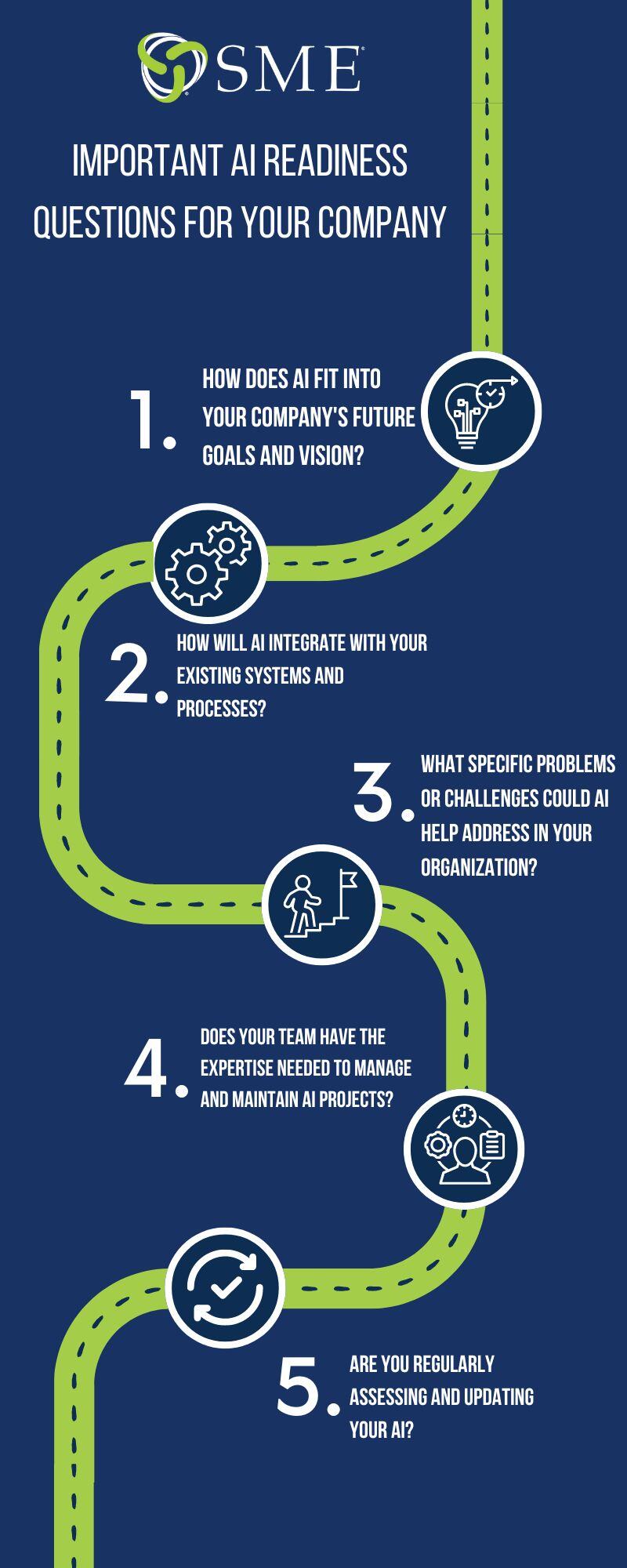Artificial intelligence (AI) and machine learning (ML) have a long history and have been utilized mainly by computer scientists, statisticians, and individuals with technical backgrounds. However, as time has passed, AI and ML have become more accessible, as seen in popular technologies like Amazon Alexa and iPhone Siri.
When it comes to business analytics and business intelligence, data science has harnessed these skillsets to achieve advanced analytics, moving beyond historical and prescriptive analysis to predictive scenarios. These tasks were traditionally carried out by experts in mathematics and statistics, proficient in programming languages such as Python, R, Java, and C#.
In 2023, AI took the spotlight with Chat-GPT gaining tremendous popularity among not only the data community but virtually everyone. This technology demonstrated the capability to comprehend natural language questions and provide prompt, natural language responses that can be further expanded upon. Natural language processing has also evolved to the point where it feels like having a conversation with the application.
Advanced data solutions and AI can be powerful tools and do impressive things for businesses, like automating repetitive manual tasks that take hours to do. But before you dive headfirst into AI, it's critical to consider your organization's AI readiness. Ask yourself, "Is my company truly prepared to harness the power of AI?"
This blog post provides a series of artificial intelligence discussion questions to guide your internal conversations as you work to assess your AI readiness across various critical areas. We encourage organizations to start these conversations early and have them frequently because, through those open conversations and introspection, you can pave the way for a successful AI implementation or realize it isn't the priority for your business (and that's okay too, in fact, it isn't for most companies).
.jpg?width=600&height=300&name=AI%20Readiness%20Artificial%20Intelligence%20Discussion%20Questions%20(2).jpg)
Envisioning AI's Role: Where does AI fit in your company's future?
AI implementation and adoption is booming, with businesses eager to leverage its potential for transformation. But before you jump down the rabbit hole of "all things AI," take a moment to ask yourself: Where does AI truly fit in my company's future?
This simple question acts as a crucial compass, guiding you away from blind excitement and towards strategic implementation. Here's why it matters:
- Not Every Problem Needs an AI Band-Aid: AI isn't a magic solution for every issue. Throwing AI at a process for the sake of it can lead to wasted resources and inflated expectations. Ask yourself: what existing challenges hinder our growth? Does manual intervention create bottlenecks?
- Alignment is Key: Does AI's potential align with your long-term vision? Look at your company's goals and strategic roadmap. How can AI support those existing objectives, like improving customer experience or optimizing operations? A misaligned "AI for the sake of AI" approach leads to scattered efforts and will likely derail your core focus.
- Data Deluge or Data Desert? Remember, AI thrives on data. Does your company have the required quality and quantity of data to feed AI models effectively? Investing in a data infrastructure overhaul before diving into an AI implementation might be necessary. Don't forget to ask the ethical questions as well as there are potential ethical implications associated with AI.
- Skills and Scalability: Consider the human factor. Does your team have the expertise to manage and maintain AI projects, like prompt engineering? Upskilling is essential. Additionally, think about scalability. Can your AI solution grow alongside your business needs?
- Don't Forget the Big Picture: AI is a powerful tool, but it's not a standalone solution. How will it integrate with your existing systems and processes? Consider potential cultural shifts and ensure clear communication with all stakeholders. Remember, the successful adoption of any technology involves a holistic approach.
By asking "Where does AI fit in my company's future?" you shift your focus from impulsive action to strategic planning. This ensures you embark on an AI journey that complements your vision, solves real problems, and propels your company towards a truly transformative future, not just towards a "shiny new toy".
So, before you hop on the AI bandwagon, take a moment to step back and see if you are even ready for that next step. Without careful planning and the right questions, AI can become a disorienting maze.
Data Foundations: Is your data estate in order?
The excitement surrounding AI is real, but before you rush to build your company's AI program, take a step back and ask yourself: is your data foundation strong enough to support AI? Just like a house needs a solid base, the successful implementation of AI is dependent on the quality and structure of your data. So, before getting caught up in the whirlwind of AI possibilities, consider these essential questions:
- Is your data organized and governed? Do you have defined standards like clear labeling, access controls, and a centralized data repository for easy access and management?
- Have you tackled your unstructured data (documents, images, videos)? Are these valuable insights effectively cataloged and accessible for AI algorithms, ensuring they can be fully utilized?
- Who are the custodians of your data? Do you have designated data stewards responsible for data quality, accuracy, and accessibility, guaranteeing reliable information flow?
- Are your employees data-aware? Do individuals across departments understand the importance of data quality and responsible usage for AI projects? A data-literate workforce promotes responsible AI development and avoids potential ethical pitfalls.
By addressing these questions before embarking on your AI journey, you'll build that solid foundation needed for a successful AI implementation. We will be the first to admit that AI's potential is undeniable, but even the best-laid plans fail without well-managed data. Do yourself a favor and take the time to ensure your data is organized, accessible, and understood.
Business Intelligence (BI): Are you leveraging your existing data insights?
Business Intelligence (BI) tools have long promised (and delivered) actionable insights, but are you truly extracting their full potential? In today's data-driven world, simply having data isn't enough; you need to use it effectively. So, it's time to ask yourself: Is your BI game strong enough for the AI evolution?
- BI Beyond Buzzwords: Let's face it, if your fancy BI tools gather dust instead of empowering employees, you are not ready for AI. Are end users actively engaging with existing BI tools? (If not, identify barriers to usage, be it complex interfaces, lack of training, or data relevance.)
- Democratizing Data: Knowledge (like your data) shouldn't be siloed. Are employees across departments empowered to explore data beyond pre-built reports? Tools like self-service BI platforms can unleash hidden talents and facilitate data-driven decision-making at all levels. Foster a culture of data curiosity, not just reliance on predefined information.
- AI: The Superpower Partner: AI isn't here to replace BI; it's its natural evolution. Can your current BI tools integrate with emerging AI solutions? Imagine the possibilities – AI-powered anomaly detection, sentiment analysis, or predictive modeling seamlessly integrated with your existing data streams. This fusion unlocks deeper insights and fuels smarter decision-making.
Optimizing your BI for the AI era isn't just about technology; it's about empowering people and fostering a data-driven culture. By addressing user needs and democratizing access, you can transform your BI tools from passive data repositories to powerful engines for growth and innovation, even without the active integration of AI or Large Language Models (LLMs).
Related: Learn More About BI as a Service
Closing Thoughts on AI Readiness
AI readiness should not be a one-time assessment or conversation, instead, it should be an ongoing process. By having open conversations that include some of these questions, actively addressing identified gaps, and continuously updating your understanding of AI advancements, you can ensure your company remains equipped to navigate the evolving (and exciting) landscape of AI.
This blog post serves as a starting point for your journey towards AI readiness. By actively participating in these discussions, asking the tough questions, and taking proactive measures to address the areas of concern that have been identified, you can ensure your company is well-positioned to leverage the transformative power of AI and unlock its potential for success.
Get In Touch With Us Today
.png?width=700&height=127&name=Blue%20Mantis%20formerly%20known%20as%20SME%20Solutions%20Group%2c%20Inc.%20(GREEN).png)

.jpg)




